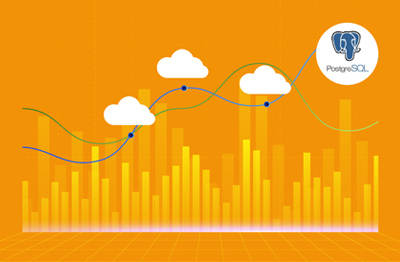Couchbase
What is Couchbase? What is Couchbase Server?
Couchbase Server (originally known as Membase) is a modern NoSQL document-oriented database software package designed for high-performance, scalable, and flexible data storage. It combines the best of document and key-value stores, offering distributed (shared-nothing) architecture, SQL-like queries, and real-time analytics for web, mobile, and IoT applications. Couchbase Server has been particularly designed to be optimized for interactive applications.

Couchbase Server is source-available software and can be run self-hosted on-premises or in the cloud. Couchbase Server offers a supported, paid for enterprise SKU.
What is Couchbase Capella?
Couchbase Capella is a fully managed DBaaS (Database-as-a-Service) platform for those who prefer to use Cloudbase without the management and maintenance overheads of self-hosting Couchbase Server.
Is Couchbase a NoSQL database?
Yes, Couchbase is a NoSQL database. NoSQL, originally short "non-SQL" i.e. "non-relational" but now often taken as “not only SQL”, refers to non-relational databases that store data in a non-tabular format, rather than in rule-based, relational tables. Learn more about NoSQL, see: NoSQL - Wikipedia.
Is Couchbase free? Is Couchbase open source?
There are various open source and community editions of the core functionality of Couchbase Server, see Couchbase Server Editions: Open Source, Community + Enterprise. The free versions lack some features available in the paid for SKU. Pricing of the Couchbase Server is on-request.
Couchbase’s DBaaS offering Capella also has a free edition, the free version of Capella comes with many limitations and is primarily suited for home lab and small-scale usage. Pricing of Cappella is available here, Couchbase Pricing for Capella, Server + Mobile Subscriptions. Pricing of Couchbase Capella is a pay as you use per hour per node model.
Why choose a Couchbase database? What are the benefits of Couchbase databases?
Significant features of Couchbase Server include:
Who are Couchbase’s competitors? What alternatives are considered to Couchbase?
Some of Couchbase's biggest and most significant competitors in the NoSQL database market are:
Each competitor caters to specific use cases but overlaps with Couchbase in areas such as scalability, performance, and flexibility.
There are plenty of community articles (and opinions) available to compare Couchbase to alternatives:
What programming languages does Couchbase support?
Couchbase offers SDKs in ten popular languages — C, C# (.NET), Go, Java, Kotlin, Node.js, PHP, Python, Ruby, and Scala. Many other third-party integrations are also available, Couchbase maintains a list of some of these on their website, see: Integrations, Connectors, and Tools | Couchbase Docs.
Does Couchbase support SQL-like queries?
Yes, Couchbase supports SQL-like queries through a query language called SQL++. The Couchbase implementation of SQL++ was formerly known as N1QL (pronounced "nickel"), N1QL stands for Non-First Normal Form Query Language. SQL++ extends SQL to work with JSON data, allowing developers familiar with traditional relational databases to query Couchbase using a similar syntax.
Key Features and Benefits of SQL++:
SQL++ makes it easier to transition from traditional databases to Couchbase while leveraging the flexibility of NoSQL. It is accessible via SDKs in various programming languages for Couchbase Server and via the Couchbase Query Service for Capella.
For details of SQL++, see: SQL++ ANSI Database Query Language (Formerly N1QL).
Does Couchbase integrate with cloud providers such as AWS, Azure, or GCP?
Yes, Couchbase integrates with major cloud providers, including Amazon AWS, Microsoft Azure, and Google Cloud Platform (GCP) in a number of ways. These integrations allow organizations to deploy Couchbase clusters in the cloud, leveraging the scalability, flexibility, and reliability of these platforms.
Key Features of Couchbase’s Cloud Integrations:
Couchbase Capella (DBaaS):
Marketplace Deployments:
Pre-configured Couchbase solutions are available on AWS Marketplace, Azure Marketplace, and Google Cloud Platform (GCP) Marketplace (pricing details are available via these links).
These support the easy provisioning and management of Couchbase clusters in these environments.
Cloud-Native Integrations:
Couchbase is a “Cloud Native” database. Learn more: Cloud-Native Database | Couchbase Docs. This means it is designed to exploit the capabilities of the clouds it runs upon, for example on:
Learn more: Cloud-Native vs. Cloud-Agnostic Architecture with Examples.
Kubernetes Support:
Couchbase provides the Couchbase Autonomous Operator for Kubernetes, enabling efficient cloud-native deployments on managed Kubernetes services including Amazon EKS, Azure AKS, and Google GKE.
Hybrid and Multi-Cloud Deployments:
Couchbase supports hybrid architectures and multi-cloud strategies, offering flexibility to deploy across different cloud providers or on-premises.
These integrations make Couchbase a strong choice for cloud-based applications requiring high performance, scalability, and resilience.
Couchbase is a widely evaluated option for businesses looking to run reliable, high-performance applications alongside modern microservices, supporting hybrid and multi-cloud strategies without cloud vendor lock-in or investment in tooling specific to a cloud vendor’s database services.
What is a Couchbase Cluster?
A Couchbase cluster consists of multiple Couchbase Server instances running on independent nodes. It distributes data and services across these nodes, ensuring high availability and scalability. This setup allows for efficient data replication, load balancing, and fault tolerance.
What tools can be used to monitor Couchbase? Are there any free tools for monitoring Couchbase?
Basic Couchbase monitoring can be performed using the Couchbase Web Console (built-in and free but limited to basic metrics and real-time data), Prometheus with Grafana (free and open-source, offering customizable dashboards but requiring significant manual setup), and ELK Stack (free but resource-intensive).
Commercial tools such as eG Enterprise, Datadog, New Relic, and Splunk provide advanced features such as pre-built dashboards, detailed analytics, and predictive insights, to varying extents and deployment automation varies. Free tools usually lack advanced alerting, historical trend analysis, and support for auto-scaling or large-scale deployments.
Monitoring Couchbase performance from an application perspective
Modern monitoring tools with APM capabilities can monitor performance in the context of the applications using databases, usually without requiring any agents on the databases. These tools will trace all application accesses and report on slow queries and exceptions during database processing. When a specific web page or URL is slow, they will provide diagnostics and answer questions such as how much time was spent on application processing vs. query processing and which queries took time.
This type of quantitative data is very helpful for eliminating finger-pointing between application development, application operations and database admin teams.










